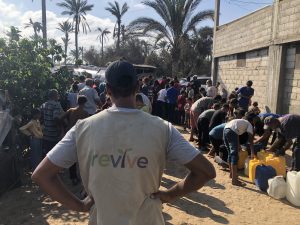

Ramadan FAQ
Ramadan F.A.Q
Ramadan is the month in which Muslims around the world fast throughout the month during daylight hours in worship of Allah (God). Furthermore, we increase in other good deeds and acts of worship such as Qur’an recitation and night prayers known as Taraweeh prayers. Many Muslims give most of their charity during this Holy Month and remember the suffering of those who are in need.
As Muslims follow the Lunar Calendar, Ramadan begins each yer when the moon is sighted following the Islamic Holy Month of Shaban. As the moon is a natural celestial body, it can’t be predicated exactly when the new moon will be seen. However, Ramadan 2023 is likely to be on Thursday 23rd March.
Ramadan is either 29 or 30 days long. This depends on the length of the lunar month, as if the new moon is not sighted on the 29th day, we complete a 30th day of fasting. This can differ internationally due to weather conditions.
As the Islamic calendar is based around the lunar calendar, Ramadan begins in the evening, when the moon is sighted at the end of the month of Shaban.
Ramadan ends when the new moon for the Month of Shawwal is sighted. It can’t be predicted exactly when the new moon will be sighted but is likely to be the eve bing of Friday 21st April 2023.
Muslims stop eating before the first light of sunrise appears in the sky and begin eating again once the sunsets.
It is essential to stay well hydrated in Ramadan, by taking in plenty of fluids but only during the hours between sunset and sunrise. It is recommended to eat plenty of fruit to increase water intake and to avoid fizzy drinks and caffeine as these lessen hydration levels. During fasting (daylight) hours, fluids and water are not consumed. Drinking water or fluids during fasting hours breaks the fast.
During the hours when there is no light in the sky. Ramadan is an excellent opportunity to break unhealthy eating habits and to detox!
For adults who can’t fast due to medical reasons and are unable to fast for the foreseeable future therefore they can’t make the fasts up within the year, they can pay a fidyah.
If your fast breaks due to illness there is no blame upon you. It is recommended to make the fats up after Ramadan (but not on the day of Eid). If a person breaks a fast deliberately without a lawful reason, they will need to make the fast up. Depending on the Madhab they follow, depends on how the fast is made up. In the Hanafi Madhab they will need to make up the fats and pay kaffarah. In the Hanbali and Shafi madhabs they only need to make up the fast, unless it was broken due to marital reasons then they will need to pay kaffarah also.
Depending on what time of year you usually give you Zakat depends when you should donate it. Most people choose to donate theirs in Ramadan. The Prophet ﷺ would increase in donating voluntary charity during Ramadan known as Sadaqah. It is encouraged to show as much generosity as possibly during Ramadan!
All of Revive’s Ramadan projects are Zakat eligible and is overlooked by Scholars to ensure your Zakat is Shariah compliant from collection through to distribution. For this reason it is not essential to specify Zakat or Sadaqah when donating, as it is your intention which makes your donation Zakat or Sadaqah. However you are welcome to specify in your donation notes to suit your preference.
Seek Allah's forgiveness in good actions!
The earthquake in Syria and Turkey is fresh. Syrian refugees are entering into one of the toughest Ramadan’s of their loves to date. Earn Allah’s blessing, by remembering those who are in need and sending food for them for Ramadan!






